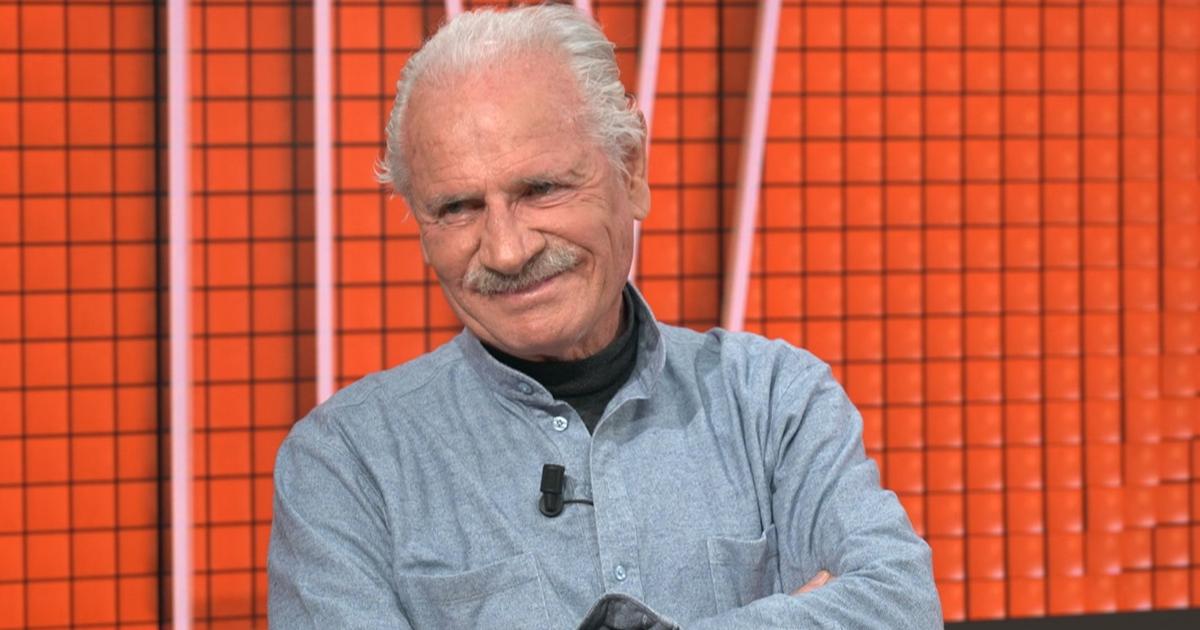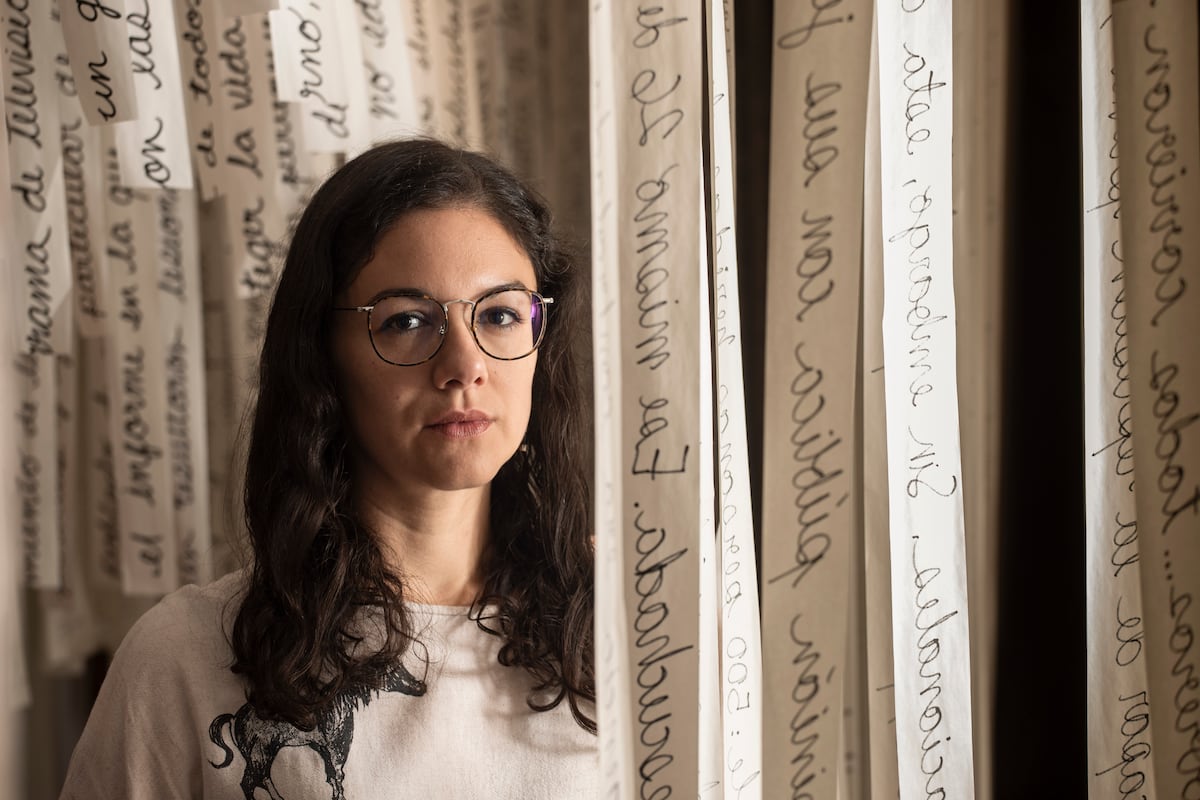Zoé Valdés (Havana, 63 years old) lives far from the madding crowd, in a town on the border between the immense metropolitan area of Paris and the peaceful French countryside.
The author of
La nada cotidiana
y
Te di la vida entera
publishes
La intensa vida
in Berenice publishing house , fragmentary memoirs through which episodes of her childhood in Cuba, the eighties in Paris and Barcelona, her French exile from 1995 and his encounters with characters like Samuel Beckett or the painter Balthus.
Question.
What is a Cuban like you doing in a place like this?
Reply.
I'm from the city.
I lived in Havana and thirty years in Paris, and I have been here since December of last year.
I'm like Bebo Valdés, who when asked: "Why do you stay in Sweden?" He said: "Because I love the snow."
I like the Cartesian order of the French countryside and forests.
In Cuba it is the mountains, the jungle, the bushes, all disordered.
Q.
It has nothing to do with where you grew up.
R.
Nothing to see, but it's okay to look for other things.
Sometimes you look for them and other times chance puts you in the place where you could not even imagine that you could be happy.
And I am very happy here.
Zoé Valdés' desk. Levy Yann (Yann Levy)
Q.
Have you been happy in France?
R.
It has been hard and sad at first, but learning makes me happy, the search for freedom.
As a Cuban, I have been unhappy, because exile is not a gift.
Forced exile is an imposition and a punishment.
Q.
Does one get used to exile?
R.
One gets used to it because there is no other choice.
I don't like the word nostalgia, but there is always a helplessness of not being able to return to the place where you were born.
Q.
Would you like to come back?
R.
When there is freedom and democracy.
Q.
Do you think it will come back?
R.
Not the same, many people have died on the road waiting for it.
Cuba is a separate case, extremely critical, more than 63 years of dictatorship.
It would be our turn to return, it would have been our turn a long time ago, but everything has conspired so that this does not happen.
And when I say everything, I don't mean only within Cuba, but rather that everything in the world has conspired to believe that Cuba is a paradise, that the revolution is eternal, that Cubans live in the best possible place.
And yet, no one is going to live there, everyone is going to live opposite: to the United States.
Q.
Have you thrown in the towel?
R.
No. Like José Martí, I am convinced that Cuba will be free and that we are on that path.
The road has been complex and hard for many.
Also, I promised my daughter, that she has never come back.
We went out together, when she was one year and two months old, and I told her: "We'll be back together."
Another detail of Zoé Valdés' work table. Levy Yann (Yann Levy)
Q.
You refer to Cuba, in the book, as “Aquella Mierdeta”, “Aquella Cagarreta” or “la Ínsula de Cagonia”.
Why does she use these words?
R.
For me, Cuba, in the political and social sense, is that: what I perceive is that bad smell, the bad smell of the shit that surrounds it.
I have not been the only one, as a writer, who has perceived it that way.
Remember
The Color of Summer
, by Reinaldo Arenas, or
Mea Cuba
by Guillermo Cabrera Infante.
Luckily I have great teachers and literary and human influences.
Q.
The bad smell, is it metaphorical or real?
R.
When I was a child, I left school and it rained, and – I have not seen this anywhere else in the world – the grass rotted instantly and you could smell a horrible smell right away.
That marked me.
I lived in a vacant lot where shit dripped from the first floor to the bottom of the stairs.
That smell has always accompanied me in relation to my childhood and Cuba.
It is that dirty smell, which is the smell of totalitarian countries.
Q.
So it's not a metaphor.
A.
No, no.
I am a sick person because of totalitarianism, because totalitarianisms make people sick.
The smell was real in my case.
I did not live in a wonderful hotel like the ones tourists go to in Cuba.
I lived on a site that collapsed, then in a shelter for two years, then in the windows of a movie theater for four years...
Q.
A sick person due to totalitarianism, she says.
A sick person is ill.
R.
I feel bad: my only medicine is writing, that's why I have never stopped writing.
It is the only remedy I have found, and I have that possibility because God gave me the gift, as Truman Capote said: when they give you a gift they give you a whip.
Guillermo Cabrera Infante got sick, Reinaldo Arenas committed suicide, and that has marked us.
My life is that.
Q.
Has this medicine worked for you?
R.
A human being and even less a Cuban being –because there is a difference between a human being and a Cuban being– is not just a part: there are many parts, and in exile you become very fragmented.
In the search for freedom, in France, with other environments, writers, other cultures, I am very happy.
However, in that dark corner of Cuba I am still very unhappy.
There is a dark part: my parents died in exile, they only wanted to return to Cuba, my daughter has not been able to return... My country was wonderful, a country with a wonderful culture.
Let the totalitarians have no illusions: although culture is the first thing they want to destroy, they never quite succeed.
P.
You are angry with the left, right?
R.
I cannot be on the left.
I went to the left.
Everyone who lived in Cuba was from the left: there was no other option.
You had to be with the gun to your head.
And from a left that is not the one you, in freedom, know.
I am not the one who is angry with the left, and that I am is not important.
It's not about anger.
It is the left that is angry with the truth and with itself.
The atrocities were not committed by me: they were committed by regimes in the name of the left.
Q.
There is an anti-totalitarian left.
R.
Yes, there is: the one that produced in Spain, with the right, a transition.
But we are going elsewhere today.
I speak of Spain because Spain is my country too and I am afraid of the drift in Spain.
That Government of Pedro Sánchez, from the first day, I did not believe it.
Subscribe to continue reading
Read without limits
Keep reading
I'm already a subscriber

/cloudfront-eu-central-1.images.arcpublishing.com/prisa/IS4OFW3O55HCPEGGFMWKGPYTYE.jpg)


/cloudfront-eu-central-1.images.arcpublishing.com/prisa/L6B3U3KQGJDBFIUSVEPPNPJCBI.jpg)
/cloudfront-eu-central-1.images.arcpublishing.com/prisa/Z4UBGLQEOBHVJGLHLVFFREHAC4.jpg)






/cloudfront-eu-central-1.images.arcpublishing.com/prisa/S7ERVSCT4FUVX6R7TUVBDNTH5Y.jpg)


